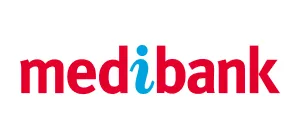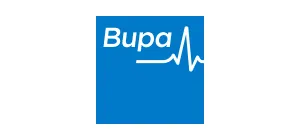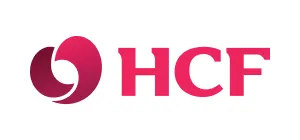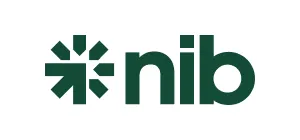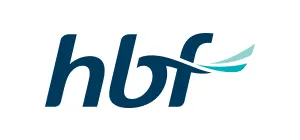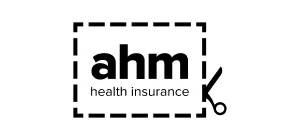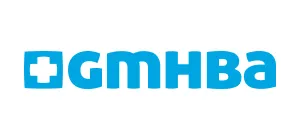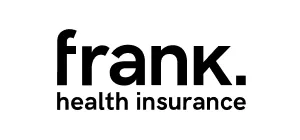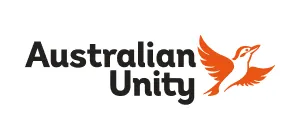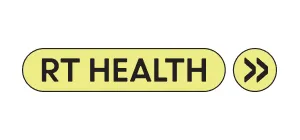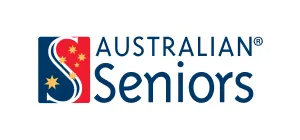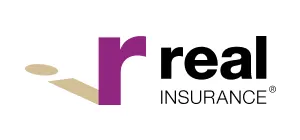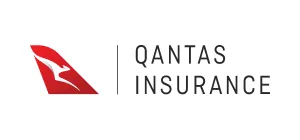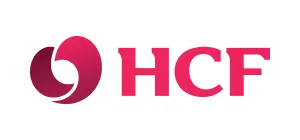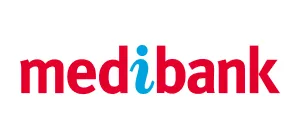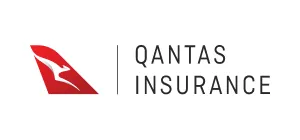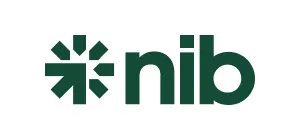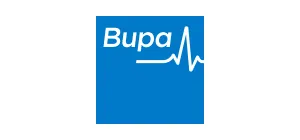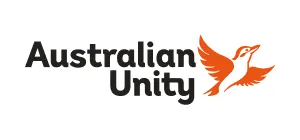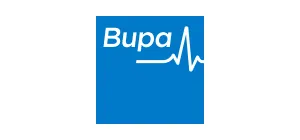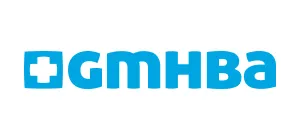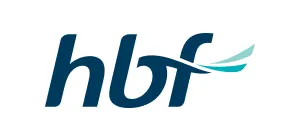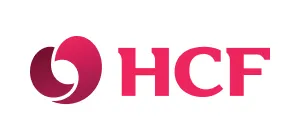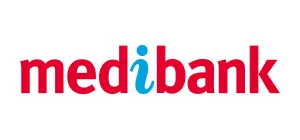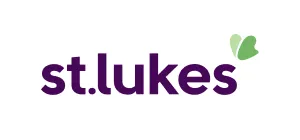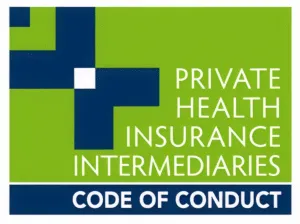Switching health insurance plans
How to switch:
- Review your current policy: Make a note of your current premiums, plus the name and type of policy you hold, to make it easier to spot a better deal.
- Get clear on your health needs: Matching your cover to your lifestyle helps you avoid paying for stuff you don’t need. Are you planning to start a family, or do you want the peace of mind of knowing you’re covered for a hip replacement or even heart surgery later in life?
- Use Canstar’s free health insurance comparison tool: When comparing health insurance policies with us look out for:
- The approximate annual premium and how it compares to similar plans
- Cover inclusions, limits, and exclusions
- The hospital excess, which is the amount you pay when making a claim on your hospital cover
- Extras such as dental, optical, physiotherapy etc.
- Any perks offered, such as discounts for new members or taking out combined cover. Remember though, sweeteners only last a short period, so factor that into your thinking!
- If you have any specific health needs, or whether your preferred treatments are covered
- Learn more about the policies you’re interested in and sign up: Call us on 1300 383 982 to ask further questions and if you are ready to move our health insurance experts can sign you up.
- You usually don’t need to contact your old provider: Unless you’re moving to a different state or territory, your new provider typically handles notifying your old one.
- Look out for your welcome pack: Your new provider will confirm that your new policy is active. Remember, keep a copy of your new policy handy. Many funds require policy numbers, membership details, or specific forms during the claiming process.
Insider tip: Nix extra wait times
You can change providers as many times as you wish without serving extra waiting periods, as long as you stick to the same or lower level of cover.
What to know before making the switch
You can switch health insurance at any time, and if you’ve paid premiums in advance, your old fund should refund the unused portion. It’s worth checking that any direct debits with your old provider are cancelled once you’ve made the move.
Most funds also offer a 30-day cooling-off period, meaning you can cancel your new policy for a refund (if no claims have been made).
Insider tip: If you can, pay your annual premium upfront.
Many people choose to switch before the annual premium rise on April 1, as paying in advance can lock in your current rate before it goes up. Keen on a particular policy? Health funds tend to push their best short-term incentives in February and March before premiums increase.
Why compare?
There are a lot of different health insurance providers on the market and even more policies—on Canstar’s database alone there are over 30 providers and 800 policies.
Health funds raise their premiums annually, putting extra strain on many consumers. Our research found the average private hospital policy increased by more than three times the government-approved average increase of 3.73%. Your health fund will tell you how much they’re raising their premiums by before April - keep an eye out for the email or letter.
Who are the best health insurance providers in Australia?
The ‘best’ health insurance provider for you will depend on your budget, stage of life and health needs. To help you in your search, Canstar's annual Health Insurance Awards recognise the health funds that provide outstanding value to customers nationally and by state or territory. You might also consider our annual Most Satisfied Customers Award, which recognises the best provider in terms of customer satisfaction as rated by everyday Australians like you.
Canstar’s 2025 Health Insurance Awards: Outstanding Value Award – Health Insurance Australia: Bupa, HCF and Medibank
Canstar’s 2025 Most Satisfied Customers Award: Health Insurer: Latrobe Health Services
See which health fund won an Outstanding Value Award in your state or territory by visiting Canstar’s 2025 Health Insurance Awards.
What are the benefits of private health cover?
In Australia, hospital cover offered by private health insurers can allow you to skip lengthy public hospital waiting lists, and give you peace of mind that your loved ones will be covered should they need to go to hospital. Private health insurance can offer you the freedom to choose your doctor and hospital, and stay in a private room—if one is available. It can make waiting times for elective procedures shorter than in the public hospital system.
Extras cover can help you cover the costs of services not covered by Medicare, such as dental, optical and physiotherapy. Private health insurance can also offer additional benefits you might not necessarily be aware of, like gym membership discounts and access to fertility support.
Types of private health insurance: which is right for you?
Private health insurance in Australia generally comes in two main types: hospital cover and extras cover, or a bundle that combines the two, called ‘combined cover’. Each serves a different purpose, so understanding the differences will help you choose the policy that best fits your needs, budget, and lifestyle.
Hospital Cover
Hospital cover can help pay for your treatment and accommodation as a private patient in hospital, giving you more choice and flexibility than in the public hospital system. 45% of Australians have hospital cover, according to the latest figures from the Australian Prudential Regulation Authority (APRA).
Basic, Bronze, Silver and Gold Hospital Cover
In Australia, hospital cover comes in four tiers–Basic, Bronze, Silver and Gold. These tiers were set out by the Federal Government, and each one has minimum legal requirements for what it must cover.
These tiers are defined by how many different types of treatments, or ‘clinical categories’, they include. A Basic policy offers limited cover for a small number of categories, while a Gold policy offers cover for all of them.
A good rule of thumb? The more treatments you want to be covered for, the higher the tier you’ll need to consider. Here’s a breakdown of how the four tiers work, and what kind of treatments they cover.
Basic hospital cover
Basic hospital cover offers the bare minimum requirements, with cover for rehabilitation, hospital psychiatric services and palliative care on a restricted basis only (meaning you're partially covered for hospital costs as a private patient in a public hospital). Most people take out Basic hospital cover not necessarily for extensive hospital benefits, but to avoid the Medicare Levy Surcharge and steer clear of costly Lifetime Health Cover loading later on.
Bronze hospital cover
Bronze hospital cover offers treatments in 18 of the clinical categories outlined by the Australian Government. This includes services like joint reconstructions, gynaecology and bone, joint and muscle treatment, as well as everything offered on the Basic tier.
Silver hospital cover
Silver hospital cover offers treatments in 26 clinical categories. As well as all those covered by Bronze, it includes treatments like medically-necessary plastic and reconstructive surgery, dental surgery, and back, neck and spinal surgery.
Gold hospital cover
Gold hospital cover is the most comprehensive level of hospital cover, and offers treatments in all 38 clinical categories. It’s important to understand that Gold is the only tier that covers cataracts, joint replacements and pregnancy and birth as standard.
‘Plus’ cover
‘Plus’ cover sits between the tiers, offering all the standard inclusions—plus a bit extra. For example, if you want pregnancy cover, but don’t want the other inclusions that come with Gold cover, some insurance companies sell what’s known as a ‘Silver Plus’ policy, which has all the standard inclusions of the Silver tier, plus pregnancy cover.
There’s no standard for what ‘Plus’ policies cover. For instance, one ‘Silver Plus’ policy might offer an extra benefit for pregnancy, and one might offer cover for joint replacements. These kinds of policies can offer a degree of flexibility to consumers.
Extras cover
Extras cover helps pay for everyday health services not covered by Medicare. Often referred to as ‘ancillary’ or ‘general treatment’, this can include options such as dental, optical, physiotherapy, chiropractic care, podiatry, and psychology. Policies usually have annual limits for each service type, which can vary depending on the level of cover.
Extras cover is ideal for those who want to reduce out-of-pocket expenses for routine care, maintain preventative health, or treat minor injuries and conditions.
Insider tips:
- Some providers may offer you a rebate on unused extras at the end of the year. Ask your provider if this is the case.
- Most providers reset limits on extras cover on the 1st of January each year. If you still have money to claim on these services, book in for treatment before it resets at the beginning of the year.
Combined cover
Combined cover bundles both hospital and extras cover into a single policy. This provides broader protection under one plan, and can make you eligible for a discount, as providers like customers to take out both hospital and extras.
Choosing the right cover
Choosing the right private health insurance comes down to your health needs, lifestyle, and budget.
Here are some ways to help find a policy that fits:
- What are your health needs? Extras cover is handy if you want help with routine health services like dental, optical, physio, or chiropractic care, rather than hospital treatments. Before choosing a policy, think about what services you actually use and how much you usually spend. Compare this with the policy’s limits and annual caps to see if it’s financially worthwhile.
- Consider your life stage: Younger singles may prioritise extras or lower-tier hospital cover, while families or older adults may benefit from more comprehensive combined plans.
- Factor in budget and waiting periods: Balance what you can afford in premiums with potential out-of-pocket costs, and check for waiting periods, especially for pre-existing conditions.
How much does health insurance cost?
According to Canstar’s November 2025 research, the average cost of a combined hospital and extras policy in Australia is around $234 a month for a young single (aged under 36), $275 per month for an established single (aged 36 to 59) and $295 per month for a mature single (aged 60 and over).
The average premium cost for a young family (36 and under, with children) is around $474 per month, and for an established family (36 to 59, with children), it’s around $558 a month. In these cost-conscious times, it can be worthwhile to compare your options every six months at least and see if there’s a better deal out there.
Medicare vs private health insurance: what’s the difference?
Medicare is Australia’s public healthcare system that helps cover the cost of treatment in public hospitals and some basic health services, and private health insurance can offer more choice and flexibility over and above this.
There are certain services that private health insurance doesn’t cover, like GP visits, x-rays, pathology and eye tests, and Medicare will provide a rebate for services like these.
Even if you have private health insurance, you can still claim on Medicare. Private health insurance does not disqualify you from being treated as a public patient in a public hospital. If you are admitted to hospital as a private patient, Medicare still generally covers 75% of your fees for treatment, with the remaining 25% being covered by your health insurer (and you, if there are out-of-pocket costs).
What’s the Medicare Levy?
Medicare is partly funded through the Medicare Levy, usually charged as 2% of your taxable income. Most Australians pay this levy, although some get a reduction or exemption for health or financial reasons as well as some family circumstances. Your Medicare Levy is worked out by the ATO when you submit your tax return.
Understanding private health insurance rebates and incentives
The Federal Government wants as many Australians to take out private health insurance as possible to avoid strain on the public system, and it offers incentives in the form of rebates. The government will also apply loading and surcharges to those who don’t take out insurance.
Private health insurance rebate
The private health insurance rebate is provided by the Federal Government and is calculated based on your household income as a single or couple, and the age of the oldest person in the household.
2025-2026 income thresholds for the health insurance rebate
Base tier | Tier 1 | Tier 2 | Tier 3 | |
|---|---|---|---|---|
Singles | $101,000 or less | $101,000 - $118,000 | $118,001 - $158,000 | $158,000 + |
Families | $202,000 or less | $202,001 - $236,000 | $236,001 - $316,000 | $316,001 + |
Rebate levels effective 1 April 2025 - 31 March 2026
Base tier | Tier 1 | Tier 2 | Tier 3 | |
|---|---|---|---|---|
Under 65 | 24.288% | 16.192% | 8.095% | 0% |
Age 65 to 69 | 28.337% | 20.240% | 12.143% | 0% |
Age 70+ | 32.285% | 24.288% | 16.192% | 0% |
Say you’re a single, aged 30 and earning $90,000 a year. You would be able to claim a rebate of 24.288% on your health insurance premiums each year. Most people choose to claim the rebate as a direct reduction in insurance premiums, which can be done by submitting an application to your health insurance provider.
Some instead choose to claim it as an offset on tax, so it’s a good idea to ask your accountant if this approach is suitable for you.
Lifetime Health Cover loading
Lifetime Health Cover (LHC) loading is a way to incentivise Australians to take out health insurance at a younger age by making coverage more expensive as you get older. If you do not have private hospital cover the year you turn 31, then a 2% LHC loading is applied, with 2% more for each year that you don’t take out private hospital cover.
The maximum LHC loading that can be applied to a person is 70%, and it is taken away once you have had 10 continuous years of cover.
Medicare Levy Surcharge
The Medicare Levy Surcharge (MLS) is a surcharge of between 1 - 1.5% of your taxable income that's added to your tax at the end of the financial year if you earn over a certain threshold and do not have private hospital insurance. If this applies to you, it needs to be paid in addition to the Medicare Levy.
Currently, you may be required to pay the surcharge if you earn more than $101,000 a year as a single or $202,000 combined as a family, and do not have private hospital cover. When working out your income, financial losses, super contributions and your spouse’s income are taken into account.
The MLS is tiered based on income, and the more you earn, the more you’ll be charged. For example, if you’re a single earning $110,000 a year and you do not have an eligible level of hospital cover, then a 1% surcharge would be added to your tax at the end of the financial year.
To avoid the Medicare Levy Surcharge, you must have a hospital policy with an excess of $750 or less as a single, and $1,500 or less as a family.
Medicare Levy Surcharge income tiers for financial year 2025-2026
Single | Up to $101,000 | $101,001 - $118,000 | $118,001 - $158,000 | $158,001+ |
|---|---|---|---|---|
Family | Up to $202,000 | $202,001 - $236,000 | $236,001 - $316,000 | $316,001+ |
MLS amount | 0% | 1% | 1.25% | 1.5% |
Health insurance for every stage of life
Private health insurance for singles
With a singles policy, you can tailor your cover to your own healthcare needs, without paying for things you don’t use. In fact, some couples choose to take out separate singles policies so each person can pick the cover that suits them best.
Private health insurance for couples
Couples health insurance is a policy designed for two adults, whether you’re married, in a de facto relationship or simply sharing a life together.
Having a couples policy can make things simpler, since you only manage one policy and one payment.
Private health insurance for families
Family health insurance brings everyone under one policy—two adults and one or more kids under the age of 31. It’s designed to help with hospital costs and everyday healthcare for the whole family, from dental check-ups to emergency treatments.
Having one family plan keeps things simple, but make sure the policy keeps up as your kids grow and their needs change.
Tips for families:
- For a family where the kids have moved out, you may find you have different needs to your partner and it may be cheaper to take out individual policies.
- Look at the limits on extras. Some families may need higher annual limits for dental or physio if multiple children are claiming.
Adding kids to your private health policy
You can usually add children to your existing singles or couples policy, or switch to a family or single-parent plan. Check with your provider, as this particular coverage varies between policies!
Insider tip: Keeping your children on your policy
Family policies are often only marginally more expensive than a couples policy. It may also be cheaper for your children under 31 to stay on your policy rather than take out their own.
Waiting periods and exclusions: need to know
Most private health policies have a set period of time you must wait after joining before you can claim for certain services. For example, hospital treatment for pre-existing conditions like pregnancy may have a 12-month waiting period, while extras like dental or optical often have shorter ones. Policies may also have exclusions for specific treatments, so read the fine print.
Does private health cover have drawbacks?
It can also pay to consider some potential downsides of health insurance, such as:
The cost of premiums
Cost can be a key barrier to taking out private health insurance, especially in these budget-conscious times. That said, if you already have private health insurance and are considering dropping your cover, it could pay to compare and see if you can get what you need for a more competitive price.
Potential to be hit with extra costs
Even if you have private health insurance, you could be hit with out-of-pocket costs for treatment. For example, if you have hospital cover and need to be admitted, you will first need to pay your excess—this can be up to $1,000, and is payable on your first admission each calendar year.
You may also be asked to pay a co-payment for a hospital admission, which is an amount that covers services and treatments over and above what your insurance does. In some private hospitals, this can be up to $100 a night.
Limits can leave you out of pocket
The extras component of insurance has annual limits that apply, meaning you can only claim up to a certain amount for most services. When it comes to orthodontics and laser eye surgery, some providers will even impose what’s known as a ‘lifetime limit’, after which you won’t be able to claim anymore even if you change providers.
Limited choice of providers that offer cover
You may find that your health fund has agreements with specific hospitals or medical practitioners and you’ll need to see them in order to receive full benefits.
Likewise, when it comes to extras insurance, health funds sometimes have a network of preferred providers whose services are fully covered.
Tips for negotiating a better deal on your health insurance
Here are four quick ways to review and reduce your costs without sacrificing the protection you need.
1. Review your level of coverage
Avoid paying the “lazy tax” by checking you’re not still covered for services you no longer need – for example, are you paying for pregnancy and birth-related care when your kids are grown up and you don’t plan on having more?
2. Check your hospital excess
Opting for a higher excess (for example, $750 instead of $250) can lower your premiums, but make sure you could comfortably afford that amount if you ever need to make a claim.
3. Focus on extras you will use
Extras cover helps pay for services like dental, optical, and physio that Medicare doesn’t include. Focus on extras you actually use, and check whether your provider waives shorter waiting periods—many do for new members.
4. Compare your options
Start by calling your current provider to ask about discounts or policy updates that might suit you better. If you’re still paying too much, compare your options with Canstar to see if there’s a better deal for you.
Health Insurance cheat sheet: stay covered and avoid surprises
1. Keep your premiums up to date
- Pay on time. Most funds expect you to be ahead of the game.
- Struggling? Talk to your fund; they often have payment plans or financial hardship support.
- Have a direct debit set up for payment? Give your statements a quick check each month to make sure you’re up to date.
2. Keep your fund in the loop on life changes
- Update your contact info. Don’t let correspondence get lost in the void.
- Switching accounts or credit cards? Give your fund 2–3 weeks’ notice for direct debit updates.
- Moving interstate? This could affect premiums or benefits, so be sure to check in with your provider before you make the move.
- Going overseas? Your health insurance won’t cover you for treatment abroad, so cover yourself with travel insurance.
- Away for two or more months? Ask about suspending your policy to avoid waiting periods.
3. Family changes and cover
- Had any big life events (new baby, relationship status changes) lately? Let your fund know.
- Got older kids on your policy? Check if they’re still covered when they turn 18 or leave home.
- Planning a family? Singles cover might not cover newborns with complications, for example, so get in touch early to avoid surprises.
4. Ask your doctor for a cost estimate
Before treatment, ask your doctor:
- For Medicare item numbers and charges
- If they participate in your fund’s gap cover scheme
- About expected out-of-pocket costs
- What the fees are for other doctors involved
- For a written estimate for major procedures
- How and when you’ll be billed
Insider tip: Ask about No-Gap and Known-Gap billing
Always check with your surgeon, anaesthetist, extras provider and any other specialists if they participate in your provider’s no-gap or known-gap scheme in order to avoid surprise medical bills.
This includes choosing hospitals your insurer has agreements with to ensure your accommodation and theatre fees are fully covered. Make sure to get a detailed Informed Financial Consent (IFC) quote from every provider involved so you know exactly what you’ll pay before treatment.
How to read your Private Health Information Statement (PHIS)
Your Private Health Information Statement (PHIS) gives a handy snapshot of your health cover. Here’s how it can help.
- It lists the hospital and extras services included, along with exclusions and restrictions, so you know what you can—and can’t—claim.
- You can check your excesses, co-payments, and benefit limits. That way, you’re not caught off guard if you need treatment.
- It shows the waiting periods for different treatments, helping you plan ahead for procedures or extras claims.
- Get clear on your hospital cover level (Gold, Silver, Bronze, Basic) which can help when it comes to the Medicare Levy Surcharge or your tax reporting.
- Whether you’re reviewing your policy, thinking about upgrading, or comparing other options, the PHIS gives you a concise, easy-to-read snapshot of your cover.


